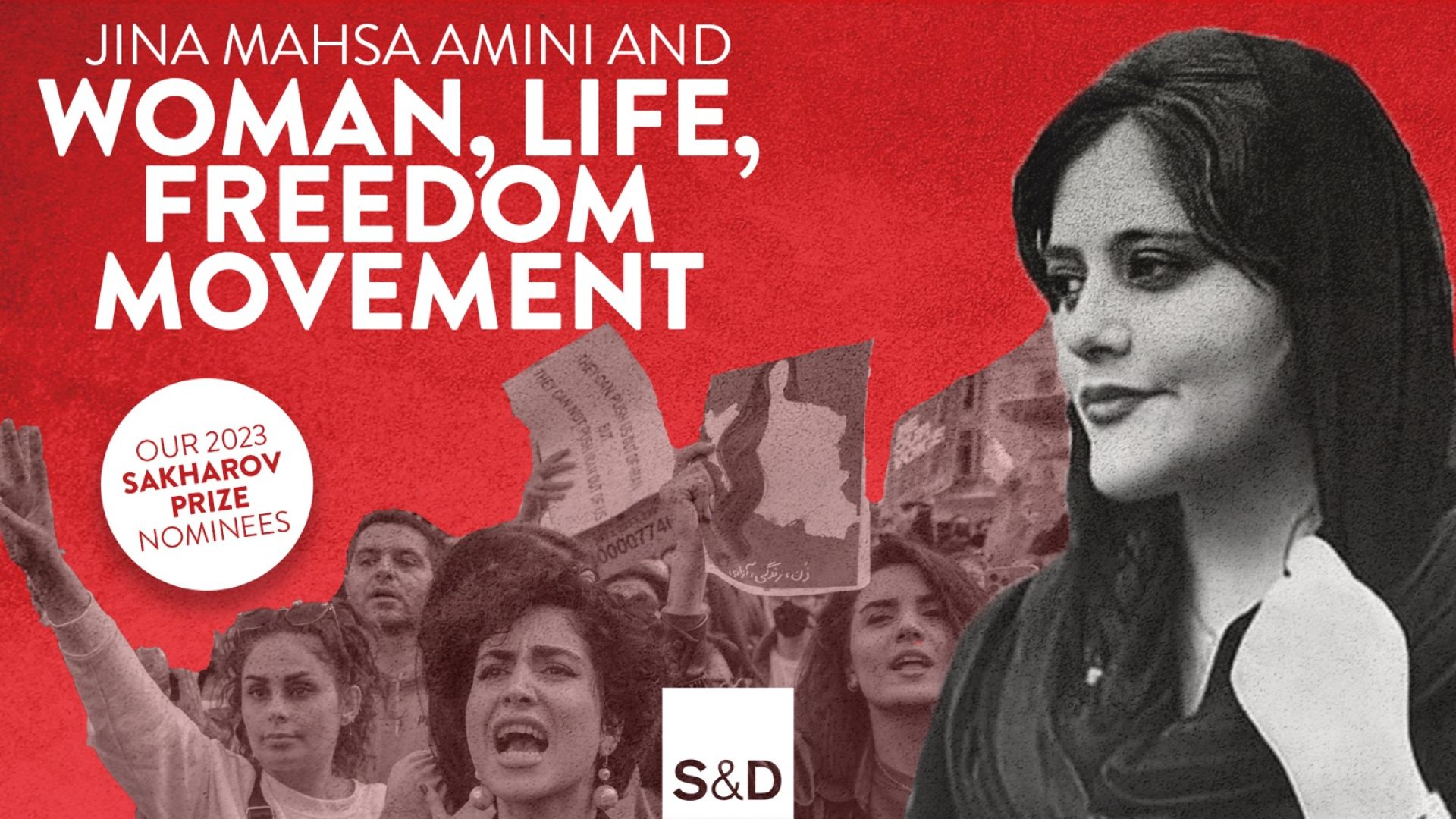Exactly one year ago today, the 22 year old Kurdish-Iranian, Jina Mahsa Amini, was arrested for allegedly disobeying Iran’s strict dress code for women. Three days later, she died in custody, after being brutalised by Iran’s morality police. This triggered civil unrest and protests against the regime of Iran, mainly led by women fighting for their rights and freedoms:
To honour Jina Mahsa Amini and the Woman, Life and Freedom Movement, made up of thousands of activists in Iran, some of whom are detained or still in danger, the S&D Group has firmly decided to nominate them* as our candidate for the 2023 Sakharov Prize**, awarded to human rights and international law defenders.
The S&D Group had also proudly presented two more candidatures that would have greatly deserved the award, namely:
- the NGOs that have worked relentlessly to save thousands of lives during the last decades and provided assistance to people in distress, who, in order to escape from misery and violence, risk their lives by crossing the Mediterranean Sea.
- Russian Youth Democratic Movement Vesna, an activist democratic movement that, since 2013, has been connecting more than a hundred young liberals and democrats who fight for the establishment of a democratic Russia.
Pedro Marques MEP, S&D vice-president for foreign affairs, said:
“A lock of hair outside Jina Mahsa Amini’s veil, the fanaticism and violence of the morality police, the death, the birth of a revolt. Since that tragic 16 September 2022, the streets in Iran have been assailed by women and men demonstrating side by side to demand their rights under the slogan ‘Woman, life, freedom’.
“The death of the 22 year old Kurdish-Iranian girl led to massive protests with women not wearing their headscarves, or cutting their hair in defiance of the Iranian regime. The Iranian authorities’ response was brutal: tens of thousands of people were arrested, killed in the streets, tortured, and raped in prison. Since then, brutality and the crackdown on protest movements in Iran has not changed.
“All our candidates would have deserved the award and certainly deserve our deepest support and gratitude for their daily efforts for saving lives and ensuring democracy and respect of human rights and dignity. The S&D’s decision to focus on Iran for the Sakharov Prize is due to the brutal regime’s crackdown on women’s rights and protests by the Iranian regime that have been especially violent and dramatic.”
Note to editors:
*The nominee: women fighting for human rights represented by: Jina Mahsa Amini and the protest movement
Jina Mahsa Amini is a victim of the Iranian authorities’ brutal repression against women. Jina Mahsa Amini was born on 21 September 1999 to a Kurdish family in Saqqez, Kurdistan Province, in northwestern Iran. While Mahsa was her official Persian given name, her Kurdish name was Jina, and this was the name her family used. Jina Mahsa attended Taleghani Girls’ High School in Saqqez, graduating in 2018. At the time of her death, she had just been admitted to university, aiming to become a lawyer. On 13 September 2022, Jina Mahsa Amini was arrested by Iran’s morality police for allegedly violating strict rules requiring women to cover their hair when in public. As witnessed by her co-detainees, Jina Mahsa Amini was tortured in the van on the way to the police station. Two hours after her arrest, due to the brutality of the morality police, Jina Mahsa Amini was transferred in desperate conditions to Kasra Hospital, where she went into a coma and died a few days later.
Her death led to massive protests with women not wearing their headscarves, or cutting their hair in defiance of the Iranian regime.
**The Sakharov Prize for freedom of thought was for the first time awarded in 1988 to Nelson Mandela and Anatoli Marchenko. It gives recognition to individuals, groups, and organisations that have made an outstanding contribution to protecting human rights. Several laureates, including Nelson Mandela, went on to win the Nobel Peace Prize.
The European Parliament awards the Sakharov Prize at a formal plenary sitting in Strasbourg towards the end of each year. Each of the Parliament’s political groups may nominate candidates and they decide together on a shortlist of three candidates. The final winner is chosen by the Conference of Presidents, a European Parliament body composed of the president and the leaders of all the political groups in the Parliament. The decision is expected in October 2023.

